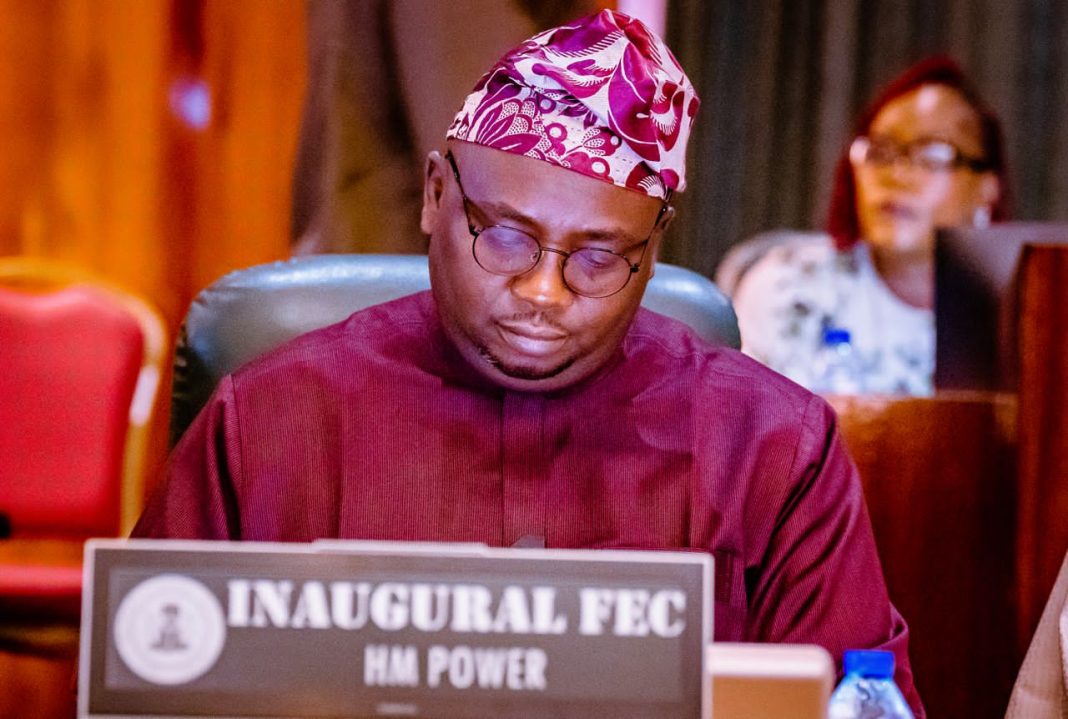ABUJA, Nigeria — Nigeria’s Minister of Power, Bayo Adelabu, has sharply criticised electricity distribution companies (DisCos) for their poor performance, accusing them of frustrating government efforts to improve electricity supply across the country.
Speaking at a two-day retreat organised by the Senate Committee on Power, Adelabu described DisCos as the weakest link in the electricity value chain, despite improvements in power generation and transmission infrastructure.
“We need to get tough with the DisCos, as they can easily frustrate all the gains we have made,” Adelabu said, according to a statement released Tuesday, May 20, 2025, by his media adviser, Bolaji Tunji.
“They have disappointed us in performance expectations. Whatever we do in generation does not mean anything to consumers if it is frustrated at the distribution points.”
Adelabu noted that many DisCos failed to meet the investment and technical partnership requirements set during the 2003 power sector restructuring.
While initial takeovers involved foreign technical partners, these relationships were often dissolved within months.
“Instead of investing in infrastructure, many used bank loans for asset acquisition and redirected funds to repay those loans,” the minister said.
He added that even with a 70 percent increase in market liquidity due to tariff adjustments—raising sector revenues from ₦1 trillion in 2023 to ₦1.7 trillion in 2024—the distribution segment continues to underperform.
“In Q4 2024, DisCos in the North remitted only ₦124.4 billion—just 30 percent of their ₦408.86 billion invoice. Abuja DisCo accounted for 85 percent of those northern payments,” Adelabu said.
In contrast, Southern DisCos remitted ₦254.6 billion, or 67 percent of their invoice, with Lagos-based companies making up 70 percent of that figure.
“These discrepancies reflect the collapse of infrastructure outside major economic hubs, due to chronic underinvestment and mismanagement,” he said.
The minister also pointed to Nigeria’s longstanding metering gap as a root cause of consumer distrust and revenue losses.
He said the government had launched two key programmes to address this: a ₦700 billion Presidential Metering Initiative (PMI) and a World Bank-supported effort targeting the deployment of 4.3 million meters by 2025.
Despite these interventions, Adelabu warned the power sector faces a subsidy backlog of ₦4 trillion, including ₦1.94 trillion for 2024 alone.
With monthly shortfalls reaching ₦200 billion, the current tariff regime, he said, is “unsustainable.”
“To salvage the sector, we will soon embark on restructuring underperforming DisCos and tightening enforcement of performance benchmarks,” Adelabu said.
He added that gains such as the March 2025 peak generation of 6,003 megawatts and the deployment of 61 new transmission transformers in 2024 would mean little if distribution networks are not simultaneously upgraded.
Adelabu called on the National Assembly to pass legislation protecting power infrastructure from vandalism and enabling more stringent oversight of the DisCos.
He also outlined plans to regionalise transmission networks to reduce system-wide failure risks and to attract private investment into national grid infrastructure.
“The DisCos in Lagos are a model of what’s possible,” he said.
“With a 70 percent remittance rate, they reflect the importance of adequate infrastructure and better governance.”







